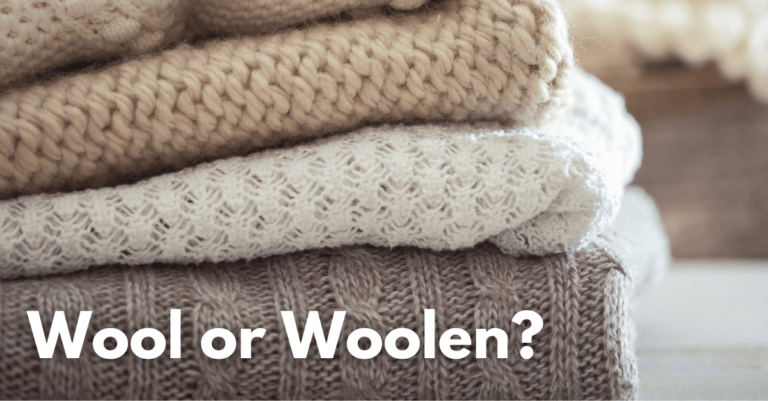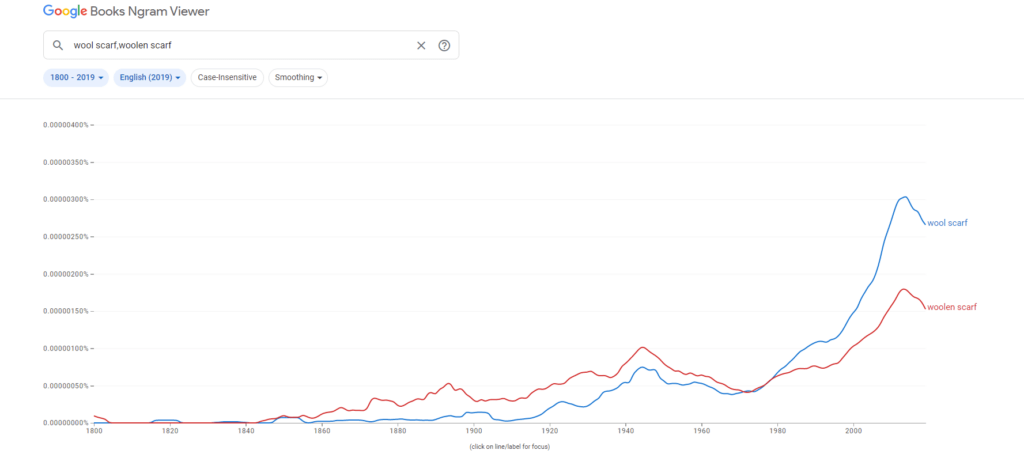Every once in a while, I get questions about word pairs such as “wood” and “wooden” or “wool” and “woolen.” Sometimes it’s a commenter insisting that you can’t wear a wool sweater—that you can only wear a woolen sweater—and sometimes it’s just someone wondering whether he should write about a wood bench or a wooden bench.
One reason for the confusion is that although we have adjectives in English, we can also use nouns as adjectives. When we do so, they’re called attributive nouns.
When Do Nouns Act Like Adjectives?
Some nouns often act like adjectives, some only do it sometimes, and others rarely or never act like adjectives. To make matters even more confusing, some words are both nouns and full adjectives.
I decorated the wood tables with cotton tablecloths, and everyone loved my patio setup.
We could substitute a word that is only an adjective in place of all those nouns: I could write something like “I decorated the old tables with pretty tablecloths, and everyone loved my cute setup.” The adjectives “old,” “pretty,” and “cute” replaced all those nouns that were acting like adjectives. The sentence doesn’t mean exactly the same thing, but it’s still grammatically correct.
A while ago, I came across an article by Philip Gove, the editor of Webster’s Third dictionary, in which he talks about nothing but how they struggled with labeling nouns that act this way. (1) They were the first dictionary to use the label “often attributive” for some nouns, and they put a lot of thought into which nouns deserved this label.
The three nouns in my example sentences are all labeled differently in Webster’s Third. “Cotton” is used as an adjective often enough that it gets the label “often attributive.” (2) “Patio” is used this way rarely enough that it doesn’t get a special label. (3) It’s just a noun, even though we can use it attributively if we want. “Wood” had been used as an adjective for so long that it’s considered a full-blown standard adjective in its own right. (3)
Should I Use an Attributive Noun or an Adjective?
Not all nouns have related adjectives. “Cotton” and “fleece,” for example, are your only choices for describing a cotton shirt and fleece jacket. But when there is a related adjective you get to choose. For example, since “wool,” and “silk” have the adjective forms “woolen” and “silken,” you get to choose between the attributive noun and adjective. You can wear a silken scarf with your woolen sweater, or you can wear a silk scarf with your wool sweater. Both ways of saying it are correct. You can also mix and match, saying you wore a silk scarf with your woolen sweater, but I think it often sounds better to stick with the same form within one sentence.
Some Attributive Nouns Are More Common Than Others
Google Ngram searches can show you when writers and editors tend to choose the attributive noun or the adjective. For example, writers don’t seem to care whether their scarves are wool or woolen. The phrase “wool scarf” is a little more common, but it’s not dramatic. On the other hand, it appears almost nobody ever writes “woolen blazer.” “Wool blazer” is vastly more common. “Wool sweater” has, for the most part, become increasingly popular relative to “woolen sweater” since the 1970s, and the same holds true for “wool socks” over “woolen socks.” As you can see, it’s more about what sounds right to you than any logical choice of whether “wool” or “woolen” is right or wrong.
Attributive Nouns Can Cause Ambiguity
Sometimes though, using the attributive noun or the adjective can cause ambiguity. Both “silk” and “wood” are nouns, full adjectives, and have the adjective forms “silken” and “wooden.” Sometimes “silken” or “wooden” is the best choice, and sometimes “silk” or “wood” is the best choice.
For example, if I talk about a silken blouse, I could mean a blouse that is made of silk or a blouse that just feels like silk. In that case, if it’s really made of silk, it is better to call it a silk blouse.
On the other hand, if I’m talking about a bench made from wood, it’s better to use the longer adjective form “wooden” and call it a wooden bench. If I called it a wood bench, you might think it is a bench for woodworking.
So as you can see, with nouns, attributive nouns, and adjectives, the choice is up to you (there’s nothing wrong with the phrase “wool sweater”), but you have to consider your words on a case-by-case basis and make sure your meaning is clear.
Nouns That Aren’t Used as Adjectives
As a final aside, I also thought it was fascinating to consider nouns that are never used attributively. A few that Gove mentioned were “abyss,” “accomplice,” and “abdomen.”
Note: “Woolen” is the typical American spelling. Dictionaries note that “woollen” is a British spelling.
References
- 1. Gove. P. “Noun Often Attributive” and “Adjective.” American Speech
Vol. 39, No. 3 (Oct., 1964), pp. 163-175. Click on this link (accessed February 11, 2023).
2. “cotton.” Webster’s Third New International Dictionary, Unabridged, with first update Merriam-Webster, Incorporated click on this link (accessed March 27, 2013).
3. “patio.’ Webster’s Third New International Dictionary, Unabridged, with first update Merriam-Webster, Incorporated (confirmed February 11, 2023).
4. “wood.” Webster’s Third New International Dictionary, Unabridged, with first update Merriam-Webster, Incorporated Click o n this link (accessed March 27, 2013).





